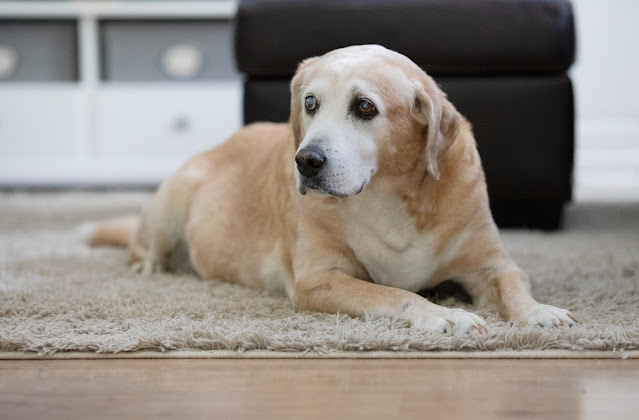🐾Aromatherapy for Pets: Gentle Healing Through Scent
Aromatherapy—the use of essential oils for therapeutic purposes—is often associated with human relaxation, stress relief, and wellness. But did you know it’s also gaining popularity as a natural remedy for pets?
From calming anxious dogs to soothing a cat’s digestion, aromatherapy for pets taps into nature’s pharmacy. But it must be used carefully and responsibly—because animals are much more sensitive than humans to scent and chemicals.
Let’s explore how aromatherapy can support your pet’s health, which oils are safe, and what to avoid.
🌿 What Is Aromatherapy for Pets?
Aromatherapy for pets involves the controlled use of essential oils to promote physical and emotional well-being in animals. It may be used:
-
Topically (diluted and applied to fur or skin)
-
Through diffusers (ambient scent in the air)
-
In baths, sprays, or shampoos
🐶 Common goals: Reduce anxiety, repel fleas, ease joint pain, or support digestion.
🧠 How It Works
Essential oils interact with the limbic system in the brain—the center of emotion and memory. In pets, as in humans, certain scents can:
-
Calm the nervous system
-
Stimulate circulation or immunity
-
Relieve minor pain or inflammation
-
Act as natural insect repellents
However, pets’ noses are far more sensitive, especially dogs and cats. So proper dilution and ventilation are critical.
✅ Pet-Friendly Essential Oils (When Used Properly)
Here are some of the safest essential oils for dogs and (with caution) some cats:
| Essential Oil | Benefits | Safe For |
|---|---|---|
| Lavender | Calming, anti-anxiety, sleep aid | Dogs, cats (low doses) |
| Chamomile | Skin healing, anxiety relief | Dogs, cats |
| Frankincense | Immune support, relaxation | Dogs |
| Ginger | Nausea relief, anti-inflammatory | Dogs |
| Cedarwood | Natural flea repellent, calming | Dogs |
🐾 Always use therapeutic-grade oils, and never apply undiluted oil to a pet.
⚠️ Dangerous Essential Oils for Pets
Some oils are toxic to animals, especially cats, whose livers lack enzymes to process certain compounds.
❌ Essential Oils to Avoid:
-
Tea Tree (Melaleuca)
-
Peppermint (in high doses)
-
Eucalyptus
-
Cinnamon
-
Citrus oils (lemon, orange, bergamot)
-
Wintergreen
-
Clove
-
Pine
🚫 Even a few drops can cause vomiting, lethargy, or worse in sensitive animals—especially cats and small dogs.
🧴 How to Use Aromatherapy Safely
1. Diffusion (Most Common Method)
-
Use a pet-safe diffuser in a well-ventilated area
-
Start with 1–2 drops only, and observe behavior
-
Never trap pets in a room with a running diffuser
2. Topical Application (Only with Guidance)
-
Mix 1 drop essential oil with at least 1 tablespoon of carrier oil (like coconut or olive oil)
-
Apply to the back of the neck or between shoulder blades—places your pet can’t lick
3. Spray Mist
-
1–2 drops oil in 1 cup distilled water with a teaspoon of witch hazel
-
Use as a calming room spray or light mist around bedding (not directly on your pet)
🧪 Always do a patch test and monitor for itching, sneezing, or behavioral changes.
🐶 Popular Uses of Aromatherapy for Pets
🛏️ Anxiety & Stress Relief
-
Lavender and chamomile for separation anxiety, storms, or travel
🐛 Flea & Tick Prevention
-
Cedarwood, lemongrass (very diluted), or geranium for natural pest control in dogs
🦴 Joint & Muscle Support
-
Frankincense and ginger may help older dogs with arthritis when used topically (diluted)
🚗 Motion Sickness & Nausea
-
Ginger and peppermint (only under expert guidance) for car rides
🧘 Signs Your Pet Likes or Dislikes an Oil
✅ Positive Reaction:
-
Approaches the scent
-
Appears calm or lies down
-
Sniffs and stays near the source
❌ Negative Reaction:
-
Sneezing or coughing
-
Pawing at the nose
-
Leaving the room or becoming restless
🐕 Let your pet choose. If they don’t like a scent, respect that preference.
📋 Quick Safety Checklist
| Tip | Status |
|---|---|
| Use only high-quality, pet-safe oils | ✅ |
| Always dilute with a carrier oil | ✅ |
| Avoid direct application to face, nose, or genitals | ✅ |
| Keep oils away from eyes and mucous membranes | ✅ |
| Observe pets for signs of distress | ✅ |
| Consult your vet or holistic practitioner | ✅ |
🌟 Final Thoughts: Nature’s Healing, with Care
Aromatherapy can be a powerful, natural support for your pet’s physical and emotional well-being—but it’s not a substitute for veterinary care. When used responsibly, it offers a gentle and effective way to ease stress, improve comfort, and enhance the quality of life.
Subscribe by Email
Follow Updates Articles from This Blog via Email


No Comments